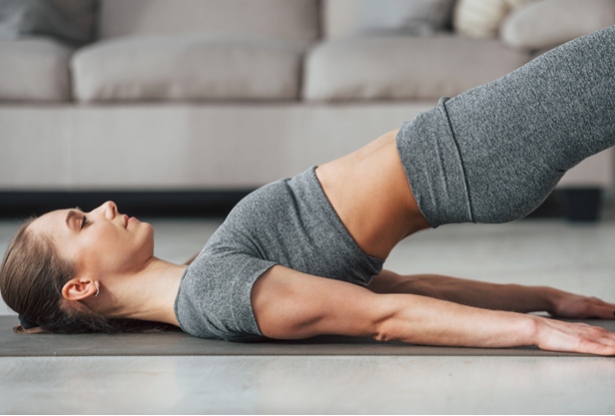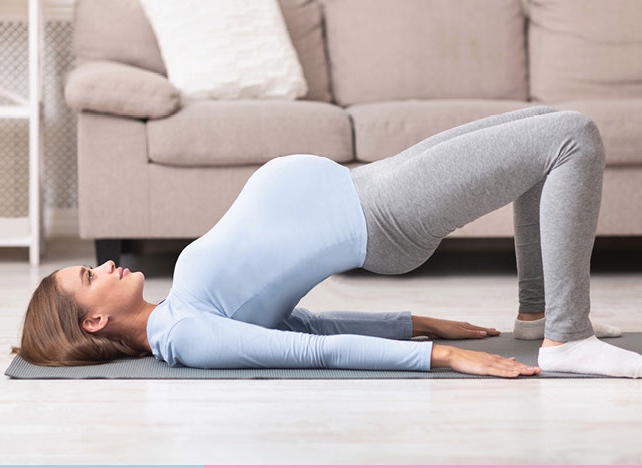Problems with bladder control can have a big influence on a person’s everyday life and negatively impact their physical and mental health. Treating urinary incontinence and other related issues appropriately is essential. The significance of Vancouver Physio for bladder control and enhancing the general quality of life is examined in this article.

Understanding Bladder Control Issues
Bladder control problems, which include conditions such as urinary incontinence, can have a wide range of causes and effects. Age, pregnancy, and certain medical conditions are among the factors that can contribute to bladder control problems. The psychological and physical consequences of bladder control problems emphasize the importance of early detection and appropriate treatment to benefit from bladder physical therapy exercises.
Symptoms of Urinary Incontinence
There are several symptoms associated with urinary incontinence that can greatly affect a person’s day-to-day activities. Frequent desires to urinate, along with strong unexpected urges that are difficult to control, are one common symptom. Another common symptom is stress incontinence, which is characterized by urine leaking during activities like laughing or coughing.
In addition to having trouble getting to the bathroom on time, people with urinary incontinence may also experience uncontrollable leaks. Frequent nighttime urination, or nocturia, is a chronic ailment that can interfere with sleep cycles. Urine dribbling continuously, the feeling that the bladder is not completely emptied after urinating, and a higher risk of urinary tract infections are other symptoms. Another layer of distress is the emotional and psychological peal that dealing with problems related to urine control takes.
10 Causes of Bladder Problems
Numerous reasons can lead to bladder issues, affecting different elements of bladder function. Typical causes consist of:
- Urinary Tract Infections (UTIs): Urinary tract infections, particularly those affecting the bladder, can cause discomfort, urgency, and frequent urination.
- Bladder or Urinary Tract Stones: Stones can irritate and block the bladder, which can cause abnormal bladder function.
- Problems with the bladder’s muscles: Disorders such as overactive bladder (OAB) or underactive bladder (UAB) can impact the contractions of the muscles that are essential for the storage and release of urine.
- Prostate Complications: Men’s inflamed prostates can obstruct urine flow and make it difficult to empty the bladder. Physical therapy for incontinence in males can reduce the problems.
- Hormonal Changes: Women may develop incontinence as a result of changes to the urethra and bladder caused by hormonal changes, particularly after menopause.
- Effects of Medication: Bladder function may be negatively impacted by some drug side effects.
- Bladder cancer: Changes in urination patterns are one of the symptoms that bladder tumors can cause.
- Pelvic Floor Disorders: Bladder issues may be aggravated by weakness or malfunction in the muscles that support the bladder and pelvic organs.
- Bladder Trauma: Traumas or surgical incisions to the bladder can cause problems with function.
It is imperative to consult a healthcare provider if you are having bothersome or chronic bladder problems. They are able to identify the root problem and suggest suitable courses of action or management techniques.
Bladder control problems, like urinary incontinence, require early detection and treatment, including physical therapy. Symptoms, such as frequent urges and emotional distress, signal the need for prompt consultation with a healthcare provider. Physical therapy for bladder control, focusing on pelvic floor muscle strengthening, is key to improving bladder control and quality of life.
The Role of Physical Therapists in Bladder Control
Physical therapists play an important role in providing bladder physical therapy exercises. These activities include:
- Evaluate and identify problems with bladder control in people.
- Create individualized treatment programs based on the patient’s unique requirements and medical conditions.
- Make use of targeted workouts to build up the pelvic floor muscles that are essential for supporting the bladder.
- Assist people in being more conscious of the messages their bodies send regarding bladder function.
- Handle and control bladder-related issues, such as muscular imbalances or pelvic floor dysfunction.
- Educate them on behavioral techniques and lifestyle adjustments that can improve bladder control.
- Work together with medical specialists to provide patients with bladder problems with all-encompassing care.
- To get the best outcomes, track developments and modify treatment strategies as necessary.
- Provide assistance and direction to enhance the general well-being of those who are experiencing problems with their bladder control.
- Play a vital part in enabling people to use therapeutic interventions to improve their control over their bladder function.
Understanding Physical Therapy Exercises For Seniors
Physical therapy sessions incorporate exercises that raise a good feeling, heightening individuals’ responsiveness to their body’s signals. This developed awareness contributes to better control over bladder function and reduces the frequency of unconscious leaks.

Challenges in Physical Therapy Practice for Patients
Overcoming a number of obstacles is necessary in the field of physical therapy. Among the frequent problems are:
- Patient Observance: Promoting regular agreement with treatment programs and exercise schedules is a constant problem that affects therapy outcomes.
- Various Patient Needs: Therapists in physical therapy for bladder control frequently deal with a wide range of ailments, which calls for flexible strategies suitable to each patient’s requirements.
- Keeping Up: For the best results, it’s critical to follow the therapist’s recommended treatment regimen and workout schedule.
- Making the Most of Resources: Even in cases where equipment or time is limited, your therapist will make the most of what they have to give you the finest care possible.
- Accepting Technology: In order to improve your therapeutic experience, your therapist is dedicated to staying current with emerging technologies.
- Understanding Insurance Coverage: Be aware of any insurance limitations and discuss coverage to ensure you get the necessary sessions for your recovery.
- Mental Health Matters: Your therapist treats both your mental and physical health in order to promote your general well-being because they understand the link between the two.
- Understanding Is Power: For a better-educated treatment, make sure you fully understand your conditions and treatment plans. Don’t be afraid to ask your therapist for clarity.
- Preventing Future Problems: Physical therapy should be used as a preventative tool to preserve your well-being as well as a kind of treatment.
- The Support of Your Therapist: Your therapist acts as your representative, supporting you in the value of physical therapy and making sure your skills are acknowledged throughout your medical journey.
Physical therapists empower individuals by improving physical therapy for bladder control, personalized plans, and collaboration with specialists. Navigating challenges in patient-centric therapy involves addressing varied needs, and resource limitations by fostering a holistic approach to overall well-being.

Conclusion
This article highlights the critical impact physical therapy plays in treating problems with bladder control and improving the general quality of life. All of the described interventions for bladder physical therapy exercises, which range from behavioral changes to exercising the pelvic bottom muscles, combine to provide a thorough and efficient course of treatment. People who have trouble controlling their bladder are urged to get the right care, look into physical therapy options, and take an active role in their journey to better bladder health and wellbeing. To book an appointment for physiotherapy and Vancouver Massage Therapy visit our website.
Bladder Control Care at West Vancouver Clinic
It is recommended that you get a professional examination and help from the West Vancouver clinic if you are experiencing problems with your bladder control. The clinic’s medical professionals can do evaluations to identify the underlying cause of the issue and create a customized treatment plan to meet your individual requirements. One suggested method of intervention to improve bladder control could be physical therapy. Physical therapy for bladder control can be a really suitable treatment. Visiting the practitioners in the clinic guarantees that you will receive the appropriate care and individualized solutions to enhance your general health. Call us and set your appointment today.